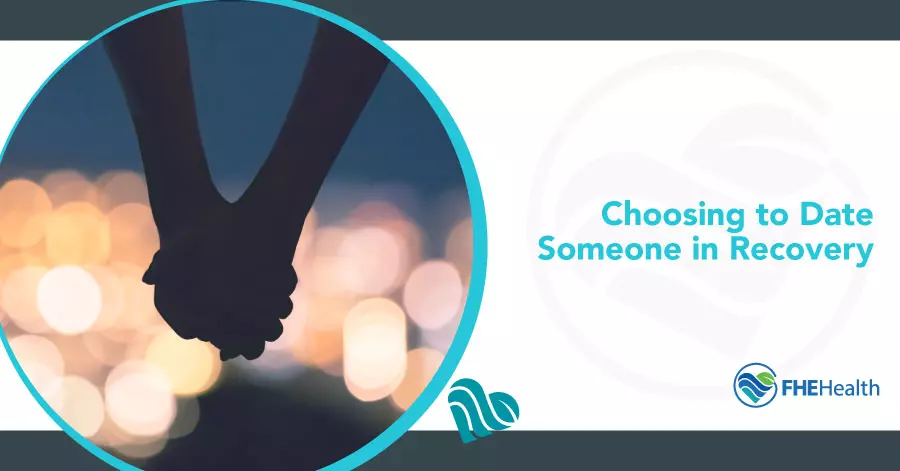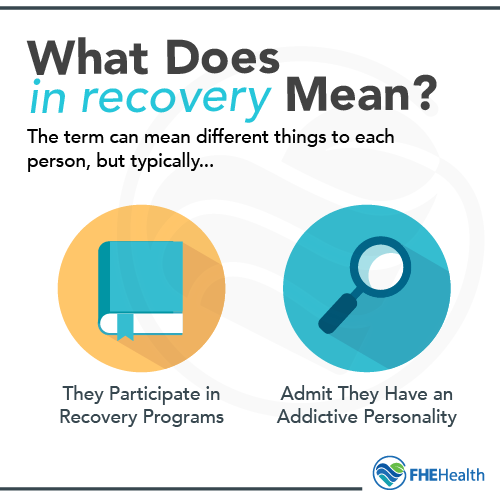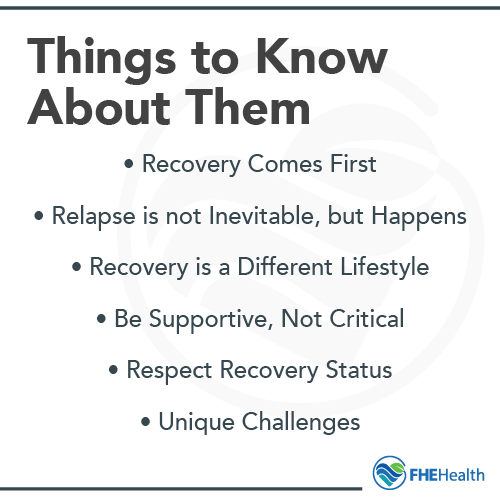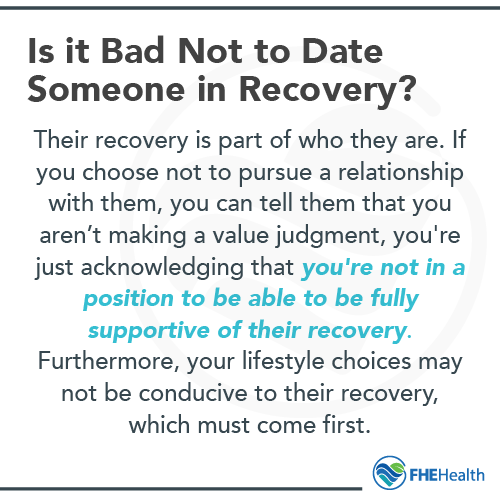
The power of attraction may be undeniable, yet before embarking on a dating relationship with someone in recovery, take a careful look at what you’re getting into. Dating at this time may not be in either of your best interests, despite your desire to be together and weather all challenges. That said, countless relationships have also flourished when one partner is in recovery. This begs the question: Should you date someone in recovery? Read on for answers.
Your Concerns Are Valid
If you are interested in getting involved with someone, yet you have just found out that this person is in recovery, you likely will be wondering if this fact is something to be concerned about. The old adage that “Love is blind” may have some validity, but you should exercise precaution before you take that next step to deepen or start a relationship with a recovering alcoholic or addict.
While the prospect of becoming more romantically involved may make you somewhat giddy, keep in mind that dating an addict in early recovery or learning how to deal with anyone in recovery isn’t necessarily a linear progression. Recovery may also not be a concept you’re used to, and you may not feel equipped to embrace the challenges that recovery can pose in a relationship. Some days will be good, and you’ll feel just like any couple, while other days may prove to be incredibly difficult. In fact, most recovery programs urge newly sober individuals not to date for the first year of their recovery. This is due to the potential complications that a romantic relationship could introduce at a time when the recovering alcoholic or addict is most vulnerable to relapse.
What Does it Mean When Someone Says They’re “in Recovery”?
 If you’ve never been around a person who’s in recovery, you may be unfamiliar with what recovery entails. While you might have some vague idea about what a recovering individual does, you may also have some misconceptions. Setting the record straight is important for any interpersonal relationship you want to have when someone says they’re “in recovery.”
If you’ve never been around a person who’s in recovery, you may be unfamiliar with what recovery entails. While you might have some vague idea about what a recovering individual does, you may also have some misconceptions. Setting the record straight is important for any interpersonal relationship you want to have when someone says they’re “in recovery.”
Participate in Recovery Programs
First, when someone is in recovery, they likely participate in recovery programs. These include Alcoholics Anonymous (AA), Narcotics Anonymous (NA), and many other recovery-focused programs from organizations and fellowships with Anonymous as part of their name.
Importantly, what this means for a potential romantic relationship is that the person in recovery will be attending meetings hosted by these recovery programs. This is non-negotiable and is something you must become comfortable with if the relationship has any likelihood of getting off the ground and becoming something more than friendship.
Admit They Have an Addictive Personality
If they don’t let you know they attend AA or the like, if they at least admit they have (or had) an addictive personality that they acknowledged to others, that’s another indication that the individual is at some point in the process of being in recovery.
Just admitting to having an addictive personality is a huge step for someone in recovery, whether or not they say they actively participate in meetings at AA or NA or other recovery fellowships. If you’ve just met an individual who says this to you, it might be wise to do some research to find out more about the recovery process. Why is this important? Being in recovery is not a one-and-done event. Recovery is a lifelong journey. You need to be able to accept and support the person’s commitment to sobriety, or the relationship will likely fail somewhere down the line.
Things to Know About Dating Someone in Recovery
 What happens when you date someone who’s in recovery? What things, specifically, may change? Here are a few things to know about dating someone in AA with a commitment to sobriety:
What happens when you date someone who’s in recovery? What things, specifically, may change? Here are a few things to know about dating someone in AA with a commitment to sobriety:
- Recovery Comes First – It’s nothing against you, and it doesn’t mean your partner (or prospective partner) cares any less about you, but the truth is that recovery has to come first. The person in recovery simply has to keep his or her priorities firmly rooted in being an active participant in their recovery. For example, starting a relationship with a recovering alcoholic means that individual will likely regularly attend recovery group meetings.
- Relapse, While Not Inevitable, Does Happen – Among other tips for dating an addict is the reminder that relapse is not the end of the world in a relationship, even though popular misconceptions abound about how going through relapse dooms a partnership. It can— yet it doesn’t need to. Nor is the mindset that relapse means failure accurate. In fact, addiction experts, like the National Institute on Drug Abuse (NIDA), say that relapse, far from being evidence of failure, is an integral part of the recovery process. Some individuals in recovery relapse many times before finding their footing firmly planted in recovery.
- Recovery Is a Different Lifestyle – Besides recovery and self-help group meetings, dating an addict in early recovery means recognizing that recovery is likely quite a different lifestyle than you’re used to. There are sober-themed events to consider as an alternative to drinks with friends, partying all hours with alcohol-or-drug-using friends, and other factors that may trigger a misstep or relapse on the part of the person who is in recovery.
- Be Supportive, Not Critical – If you’re dating someone who is sober, keep in mind that being critical of his or her efforts is not a good strategy. What you can do is be supportive of your partner’s goals in recovery, understanding why it’s necessary to put recovery before everything else— including you.
- Respect Recovery Status – Also keep in mind the recommendation to respect the person’s status of being in recovery. Since recovery is a high priority for this individual, knowing that you are both knowledgeable about and respectful of his or her recovery status is conducive to a stronger relationship.
- Unique Challenges – It’s not uncommon for the recovering individual to take up replacement addictions, something to take the place of the alcohol or drugs he or she formerly used. That’s because newly sober individuals have to grapple with the strong cravings and urges to somehow achieve that same type of euphoria or high that they got from alcohol and drugs. Rushing into a love relationship or pursuing a sexual relationship can be a form of replacement addiction, as the person in recovery seeks that heady intoxication that intimacy promises. So, while lovers experience the so-called honeymoon phase of the relationship where they’re high on love, the person in recovery may have trouble tackling and addressing issues crucial to their sobriety if they’re focused on the love relationship instead.
Benefits of Dating Someone in Recovery?
Even if you’ve never had a problem with abusing alcohol or drugs, you can benefit from dating someone in recovery. This is perhaps even truer if you’re dating someone in later recovery. The fact that this person has a history of commitment to sobriety means that they’re true to their word. They have chosen a goal and pursued it with vigor and steadfast action. That’s more than commendable, as it shows they can follow through on a plan and are motivated enough to persist despite any and all challenges. On the other hand, if you are also in recovery, dating someone who’s in recovery can similarly be a wise choice and provide some sound benefits.
Similar Goals
For one thing, you likely have similar goals for sobriety and, indeed, have made a firm commitment to abstinence.
Holding Each Other Accountable
Another benefit of dating someone in recovery is that you are able to hold each other accountable for your actions. Helping keep your partner on track with recovery group meetings is critically important, as is serving as a constant reminder of your shared desires for sobriety.
Still, it’s important to realistically assess the prospective problems that dating someone in recovery will likely bring, problems that could affect the other person’s recovery along with your own. This includes how to deal with potential family nonacceptance of someone who is sober getting involved with their son or daughter, not to mention the holiday and other stressors and triggers that can contribute to relapse. As a study published in the Journal of Substance Abuse Treatment found, higher levels of stressful life events are barriers to sustained sobriety and should be the focus of relapse prevention efforts to help recovering individuals cope with such stressors and their effects on recovery.
Is it Bad to Not Date Someone Because They Are in Recovery?
 You should not feel bad if you choose to not date someone because they are in recovery. After all, embarking on a romantic relationship is already complex and can be complicated, in and of itself. The ups and downs and emotional shifts involved in dating are well-known, for one thing. Love songs about dating, jealousy, different goals, break-ups and making up are a staple in society. Add to that the fact that dating someone in recovery poses its own challenges, and you’re right to be concerned about pursuing a closer relationship. In particular, dating an addict in early recovery is a situation where you may be unwilling to get involved.
You should not feel bad if you choose to not date someone because they are in recovery. After all, embarking on a romantic relationship is already complex and can be complicated, in and of itself. The ups and downs and emotional shifts involved in dating are well-known, for one thing. Love songs about dating, jealousy, different goals, break-ups and making up are a staple in society. Add to that the fact that dating someone in recovery poses its own challenges, and you’re right to be concerned about pursuing a closer relationship. In particular, dating an addict in early recovery is a situation where you may be unwilling to get involved.
What is important to keep in mind, though, is how you let the person in recovery know that you’re not ready at this time to enter into a close dating relationship. In other words, be gentle. You can be honest by saying that you don’t feel comfortable starting a relationship with a recovering alcoholic or dating someone who is sober. Stress that you think he or she is a terrific person and perhaps at a different time, things would be right for the two of you to date, just not now.
This way, the person doesn’t think there’s anything wrong with them. It isn’t a value judgment you’re making, just an acknowledgment that you’re not in a position to be able to be fully supportive of their recovery. You wish the person well, and may still want to be friends— only you won’t be dating.
Also, this is a time for the recovering individual to concentrate on building healthy relationships with people who are supportive of his or her recovery. It is not bad that this may not be you, so don’t feel that it’s a character flaw if it isn’t.
How to Decide Whether to Get Involved With Someone in Recovery
How, then, do you decide whether it’s a smart move to get involved with someone in recovery? Really, you should follow the same metric that you would use when contemplating a romantic relationship with anyone.
Ask yourself the following questions:
- Is this someone you like to be around?
- Does this person make you feel comfortable, and are you comfortable in their presence?
- Do you have things in common with this person?
- Do you like to do the same types of activities?
- Are your backgrounds similar, different, or somehow complementary (even if they are different)?
- Are you willing to change your behaviors, so that you don’t drink or do drugs in your partner’s presence or decide to give up drinking and/or drug use completely?
On the other hand, what is slightly different and should be at the top of your list of tips for dating an addict or dating someone who is sober is the recommendation to be aware of mental boundary lines that you may need to set up beforehand.
Other key questions to ask yourself—and these are very important—include:
- Would you feel responsible if the other person relapsed?
- What about that individual feeling responsible for your relapse, if that happens?
- Would you both be likely to relapse together? Do you foresee the two of you reacting like, “Oh, why not? Let’s just go out and party?”
In the end, after careful deliberation, you may decide to go with your heart and date someone in recovery. Just be sure you’re prepared to accept the challenges and risks associated with ongoing recovery— both for the person who is in recovery and for you. In line with this, you may wish to participate in Al-Anon, a support group specifically for the loved ones, family and friends of recovering alcoholics.
Above all, take it slow in developing your relationship. Recognize that you aren’t trying to fix the other person. Take care of yourself and your needs, and remember that all relationships are complicated. Acknowledge that recovery affects and involves both of you and commit to being loving and supportive.






